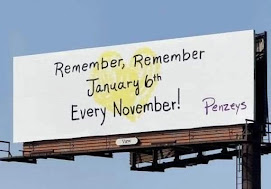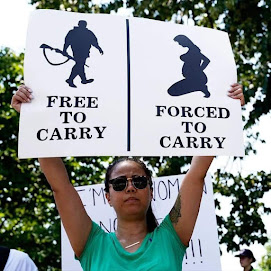The Texas Observer
The Awful 88th
Losers included taxpayers, teachers, trans youths, and anyone who uses electricity.
by Texas Observer Staff
June 6, 2023
As writers scanning the political horizon noted a faint glimmer of hope that, perhaps this time, lawmakers would locate their statesman-like qualities and, at long last, spend the spring giving relief to taxpayers, the environment, electricity-users, public schools, teachers, and other long-neglected government workers.
Well, it was only ever a faint hope. Instead, the Lege lived down to its reputation, and, for the most part, spent this session in, as Observer Senior Writer Justin Miller imagined it then, a race to the bottom that took us to depths “previously unknown and unimaginable.” Think of it as the Awful 88th.
Republicans, riding a wave of authoritarian successes, wasted most of the session on an assortment of cruel social policy proposals aimed at making points with their far-right supporters and, as feared, failed to address truly important things like the electric grid, gun control, and school funding. They didn’t even accomplish their own top priority, which was property tax cuts. It wasn’t all bad, but parts were very, very bad, especially for LGBTQIA+ Texans. And now there’s a special session for added thrills. Here are a handful of highlights and a lot of lows.
GOOD LUCK ON THAT GRID
The failure that may come home to roost the fastest has to do with the state’s sagging electric grid. On May 3—about a month before his resignation—Public Utility Commissioner Peter Lake warned that Texas’ demand for electricity this summer will exceed the amount that can be generated from natural gas plants.
“The Texas grid faces a new reality,” Lake said. “Data shows for the first time that the peak demand for electricity this summer will exceed the amount we can generate from on-demand, dispatchable power, so we will be relying on renewables to keep the lights on.”
Despite what’s been at stake since 246 people died and 4.5 million homes and businesses lost power during Winter Storm Uri two years ago, Texas lawmakers blew another chance to fix the grid. Instead, the Republican majority spent the last five months attempting to undermine the renewable energy industry and enrich oil and gas companies at the expense of taxpayers and consumers.
Last year renewable energy saved Texans $11 billion. But lawmakers proposed about a dozen bills to hamstring renewable energy production in Texas, now the nation’s largest producer of wind and solar energy. One bill would have required renewable energy developers to obtain a state permit, an environmental impact statement from the Parks and Wildlife Department, and hold multiple community hearings—regulatory hurdles that don’t apply to natural gas and coal plants. Another bill would have raised the costs for renewable energy producers to sell their electricity in the state’s marketplace.
That meant the bulk of the legislative session was spent with a broad coalition of players—environmentalists, manufacturers, energy generators, and even oil and gas advocates—playing defense: stopping the legislature’s attempts to kill renewable energy and minimizing handouts to the oil and gas industry at consumers’ expense. One bill would have offered zero-interest loans in taxpayer money to help maintain natural gas power plants. Another, Senate Bill 7, would have saddled taxpayers with a $6 billion check for a new energy finance tool, called the Performance Credit Mechanism, which rewards gas and coal plants for simply existing, without mandating they generate more power. As passed, the bill was capped at a still-painful $1 billion. The Legislature also passed a bill that offers $5 to $10 billion in taxpayer money for low-interest loans for new gas plants.
Thus, Texans face another hot summer and winter without any real resolution of the potentially deadly power grid problem. Citizens and businesses still largely rely on gas and coal supplies, vulnerable to extreme weather. Energy costs will continue to increase. And with the growing number of people moving into the state, energy demands will continue to outpace supply. Perhaps the Legislature would have done just as well offering a free paper fan to residents.—Josephine Lee
GOOD AND BAD NEWS ON GOOD GOVERNMENT
For the past decade, tens of thousands of state government employees across Texas toiled away without a pay raise while taking on ever-heavier workloads. The state’s largest and most-critical agencies, from child protective services to health and human services to the state prison system, were plagued by institutional crises and policy failures driven by political agendas and chronic underfunding. Turnover rates among government workers ticked up.
Then came the pandemic, which exacerbated everything. In almost every agency, employees left their jobs at near-record rates. Heading into the 2023 session with a massive budget surplus, state legislators were under immense pressure to do something to stop the bleeding.
And on that front, the Lege did take a significant—albeit long overdue—step in the direction of good government. The House and Senate struck a budget deal that includes a 5 percent bump in annual pay—at least $5,000—for government workers in each of the next two years, a total investment of nearly $2 billion. The state’s retired teachers also secured a long-awaited cost-of-living adjustment to their pension checks—something they’ve gone without for nearly 20 years—along with a bonus “13th check” for this year, totaling $5 billion.
But it wasn’t all sunshine and rainbows. Unlike their teacher counterparts, the nearly 125,000 state employee retirees got nada in the way of increased pension benefits. Meanwhile, the Legislature failed to make good on promises for more education funding and salary increases for public school teachers, those matters having been taken hostage to the broader ideological feud over school vouchers.
On a high note, lawmakers invested $1 billion into a historic, Teddy Roosevelt-esque plan to expand the state parks system, which has been strained by overcrowding in recent years. In the coming years, the vast lands of Texas will become just a smidge more public.—Justin Miller
MOSTLY TONE-DEAF TO GUNFIRE AND TRAGEDY
For more than 12 months now, the families of those lost in last year’s Uvalde school shooting have pushed one principal policy demand: that lawmakers raise the age to purchase an assault-style rifle from 18 to 21, the same age generally required to buy handguns, cigarettes, and alcohol.
These families have advocated for their cause relentlessly, making the three-hour drive from their hometown to Austin on a seemingly constant basis during the five-month regular legislative session. Texas lawmakers did not entirely ignore their pleas: In response to the Uvalde tragedy, the Lege passed measures closing a firearm background check loophole,fixing a flaw in public information law that can shield records related to mass shootings (pending a mysterious, last-minute lack of a John Hancock from the lieutenant governor), and requiring silent panic alerts in classrooms.
To the dismay of some Democrats and gun control advocates, lawmakers also passed legislation requiring an armed officer on every school campus—increasing, rather than diminishing, the presence of guns in schools.
However, compared to recent sessions past, the GOP-dominated Legislature was relatively gun-shy about loosening gun laws. “We’ve noticed that the Legislature is a little more hesitant to pass pro-gun legislation right now,” Wesley Virdell, state director for Gun Owners of America, told the Texas Tribune.
Any reluctance to quadruple-down on Second Amendment absolutism must be credited to the Uvalde families’ activism—though another factor may be that Texas Republicans in prior years had already passed the bulk of any pro-gun extremist’s wishlist.
Before the session began, state Senator Roland Gutierrez, who represents Uvalde, told the Observer that he would use every legislative trick he could to force a gun control discussion in the beet-red Texas Senate. He stayed true to his word, and in return he was effectively shut out of lawmaking altogether.
In a last-minute surprise, House legislation to raise the assault-rifle purchase age did pass out of committee on a bipartisan vote. But House leadership almost immediately let the measure die at the next procedural step, preventing a floor vote—during which the whole body would have finally had to stake out a public position on a policy that is popular statewide but controversial in the insular world of GOP primaries.
On the very evening that the regular legislative session ended, Governor Greg Abbott initiated a follow-up special session focused on property taxes and border security—not gun control. Last year, Abbott ignored calls emanating from Uvalde for an early special session addressing their tragedy.
In response to the new special session announcement, Brett Cross, uncle and guardian to 10-year-old Uziyah Garcia, who was killed in the shooting last year, tweeted on May 30: “It goes without saying that [Abbott] has shown he doesn’t care about children dying. There will be another mass shooting. Children will die. And Abbott will show everyone again that he doesn’t care as long as it’s not him or his.”—Gus Bova
WORRYING ABOUT SEXY BOOKS -- BUT NOT MONEY FOR TEACHERS OR SCHOOLS
Abbott’s big dreams for school vouchers flopped during the regular legislative session, but Republican lawmakers did manage to kill a bill that would have allocated more than $4 billion to raise teacher pay and increase school funding in the process. All this after he set up a teacher vacancy task force in 2022 to get to the bottom of why teachers were leaving Texas schools en masse. The few small victories during the session—like more allowances for students who miss testing days due to religious reasons and the banning of some discriminatory dress codes—were overshadowed by the complete lack of additional funding for public education.
School vouchers weren’t the only controversial topic on the docket. Lawmakers started the session with dozens of proposed bills aimed at limiting what ideas students are exposed to, but the one that found footing was House Bill 900. The bill requires vendors to create rating systems to flag “sexually explicit” material in books—which critics say is a dog-whistle for LGBTQ+ themes.
The new law that requires each campus to have at least one armed security guard, even though hundreds of armed officers failed to prevent a gunman from killing 19 students and two teachers in Uvalde, drew plenty of criticism.
“We firmly believe that school safety and preventing violence in schools is of the utmost importance,” wrote advocacy group Texas Appleseed in response to the bill. “However, decades of research and experience have shown that increased police presence in schools does not prevent school violence or shootings or stop them when they occur.”
Critics also want to know where districts are expected to get the funding for the personnel.—Michelle Pitcher
PUNCHING BAGS FOR REPUBLICANS
Although Republicans floated dozens of anti-LGBTQ+ bills during the regular session, just a handful of them made it to the governor’s desk. Still, each one whittles away at the rights of queer folks in Texas in different and distinctly harmful ways. These include: banning medically-necessary gender-affirming care for transgender young people, banning transgender athletes from participating in sports at public colleges and universities, a broadly written bill targeting “sexually explicit” performances (meant to criminalize drag performers), and a bill to ban or restrict public library books that Republicans deem to be “sexually explicit” or “educationally unsuitable.”
The most immediately harmful bill of the bunch looks to be Senate Bill 14, which prohibits evidence-based, frequently life-saving care for transgender young people under 18, including treatments like hormones and puberty-blockers, a reversible treatment to slow the onset of adolescence. Doctors caught providing these forms of healthcare to trans kids would be stripped of their medical licenses, even though essentially all of the same treatments can legally be used on cisgender individuals (and most controversially, intersex people) under other circumstances. For example, some cis kids who enter puberty too early may be prescribed the same blockers now banned for trans kids.
A coalition of groups including Lambda Legal, the Transgender Law Center, and American Civil Liberties Union (ACLU) of Texas have pledged to sue to block the bill’s enforcement on the grounds that it creates an illegal double standard. Thanks to Abbott’s signature on Monday, the new law goes into effect September 1, and it’s already becoming harder to access trans healthcare in the state as doctors and clinics move or close.
“In the last two weeks, we have probably gotten somewhere between 40 and 50 phone calls from panicked parents,” a leading New Mexico pediatric physician told the Observer. “What I’m hearing from families is that appointments that they had already scheduled are now gone,” said Dr. Michele Hutchison, chief of pediatric endocrinology at the University of New Mexico in Albuquerque. That leaves families scrambling to secure care in neighboring states to avoid disastrous interruptions in treatment.
Senate Bill 12, the so-called “drag ban” bill, underwent significant changes in its journey through the two chambers. Explicit references to drag performers were removed but the bill’s scope was broadened to ban so-called “sexually explicit” performances anywhere minors are present. A last-minute addition targets the usage of certain prosthetic body parts, such as the silicone breasts or artificial phalluses sometimes worn by drag performers—and by some transgender people, too.
“There is no good version of this bill,” said Ash Hall, a policy and advocacy strategist at the ACLU of Texas who focuses on queer rights. “Because it’s not limited to business premises anymore, a major concern I have is how this is going to play out in Pride parades,” they said.
However, Hall suggested Abbott might veto the bill because, as written, it could even affect performances by groups like the Dallas Cowboys Cheerleaders. Of course, if this one is vetoed, the next step could be passage of a new version of the bill in special session. Already, Lieutenant Governor Dan Patrick has called for a special session bill to ban drag queen story hours at public libraries.
Despite the record-breaking attacks on LGBTQ+ rights this year, Hall said they find hope in the queer community, which came out by the thousands to oppose the bills.
“They want us all to go back in the closet and be miserable or shut up, but we won’t,” Hall said. “Trans people have always been here and always will be. They can’t legislate us away.”—Kit O’Connell
Well, it was only ever a faint hope. Instead, the Lege lived down to its reputation, and, for the most part, spent this session in, as Observer Senior Writer Justin Miller imagined it then, a race to the bottom that took us to depths “previously unknown and unimaginable.” Think of it as the Awful 88th.
Republicans, riding a wave of authoritarian successes, wasted most of the session on an assortment of cruel social policy proposals aimed at making points with their far-right supporters and, as feared, failed to address truly important things like the electric grid, gun control, and school funding. They didn’t even accomplish their own top priority, which was property tax cuts. It wasn’t all bad, but parts were very, very bad, especially for LGBTQIA+ Texans. And now there’s a special session for added thrills. Here are a handful of highlights and a lot of lows.
GOOD LUCK ON THAT GRID
The failure that may come home to roost the fastest has to do with the state’s sagging electric grid. On May 3—about a month before his resignation—Public Utility Commissioner Peter Lake warned that Texas’ demand for electricity this summer will exceed the amount that can be generated from natural gas plants.
“The Texas grid faces a new reality,” Lake said. “Data shows for the first time that the peak demand for electricity this summer will exceed the amount we can generate from on-demand, dispatchable power, so we will be relying on renewables to keep the lights on.”
Despite what’s been at stake since 246 people died and 4.5 million homes and businesses lost power during Winter Storm Uri two years ago, Texas lawmakers blew another chance to fix the grid. Instead, the Republican majority spent the last five months attempting to undermine the renewable energy industry and enrich oil and gas companies at the expense of taxpayers and consumers.
Last year renewable energy saved Texans $11 billion. But lawmakers proposed about a dozen bills to hamstring renewable energy production in Texas, now the nation’s largest producer of wind and solar energy. One bill would have required renewable energy developers to obtain a state permit, an environmental impact statement from the Parks and Wildlife Department, and hold multiple community hearings—regulatory hurdles that don’t apply to natural gas and coal plants. Another bill would have raised the costs for renewable energy producers to sell their electricity in the state’s marketplace.
That meant the bulk of the legislative session was spent with a broad coalition of players—environmentalists, manufacturers, energy generators, and even oil and gas advocates—playing defense: stopping the legislature’s attempts to kill renewable energy and minimizing handouts to the oil and gas industry at consumers’ expense. One bill would have offered zero-interest loans in taxpayer money to help maintain natural gas power plants. Another, Senate Bill 7, would have saddled taxpayers with a $6 billion check for a new energy finance tool, called the Performance Credit Mechanism, which rewards gas and coal plants for simply existing, without mandating they generate more power. As passed, the bill was capped at a still-painful $1 billion. The Legislature also passed a bill that offers $5 to $10 billion in taxpayer money for low-interest loans for new gas plants.
Thus, Texans face another hot summer and winter without any real resolution of the potentially deadly power grid problem. Citizens and businesses still largely rely on gas and coal supplies, vulnerable to extreme weather. Energy costs will continue to increase. And with the growing number of people moving into the state, energy demands will continue to outpace supply. Perhaps the Legislature would have done just as well offering a free paper fan to residents.—Josephine Lee
GOOD AND BAD NEWS ON GOOD GOVERNMENT
For the past decade, tens of thousands of state government employees across Texas toiled away without a pay raise while taking on ever-heavier workloads. The state’s largest and most-critical agencies, from child protective services to health and human services to the state prison system, were plagued by institutional crises and policy failures driven by political agendas and chronic underfunding. Turnover rates among government workers ticked up.
Then came the pandemic, which exacerbated everything. In almost every agency, employees left their jobs at near-record rates. Heading into the 2023 session with a massive budget surplus, state legislators were under immense pressure to do something to stop the bleeding.
And on that front, the Lege did take a significant—albeit long overdue—step in the direction of good government. The House and Senate struck a budget deal that includes a 5 percent bump in annual pay—at least $5,000—for government workers in each of the next two years, a total investment of nearly $2 billion. The state’s retired teachers also secured a long-awaited cost-of-living adjustment to their pension checks—something they’ve gone without for nearly 20 years—along with a bonus “13th check” for this year, totaling $5 billion.
But it wasn’t all sunshine and rainbows. Unlike their teacher counterparts, the nearly 125,000 state employee retirees got nada in the way of increased pension benefits. Meanwhile, the Legislature failed to make good on promises for more education funding and salary increases for public school teachers, those matters having been taken hostage to the broader ideological feud over school vouchers.
On a high note, lawmakers invested $1 billion into a historic, Teddy Roosevelt-esque plan to expand the state parks system, which has been strained by overcrowding in recent years. In the coming years, the vast lands of Texas will become just a smidge more public.—Justin Miller
MOSTLY TONE-DEAF TO GUNFIRE AND TRAGEDY
For more than 12 months now, the families of those lost in last year’s Uvalde school shooting have pushed one principal policy demand: that lawmakers raise the age to purchase an assault-style rifle from 18 to 21, the same age generally required to buy handguns, cigarettes, and alcohol.
These families have advocated for their cause relentlessly, making the three-hour drive from their hometown to Austin on a seemingly constant basis during the five-month regular legislative session. Texas lawmakers did not entirely ignore their pleas: In response to the Uvalde tragedy, the Lege passed measures closing a firearm background check loophole,fixing a flaw in public information law that can shield records related to mass shootings (pending a mysterious, last-minute lack of a John Hancock from the lieutenant governor), and requiring silent panic alerts in classrooms.
To the dismay of some Democrats and gun control advocates, lawmakers also passed legislation requiring an armed officer on every school campus—increasing, rather than diminishing, the presence of guns in schools.
However, compared to recent sessions past, the GOP-dominated Legislature was relatively gun-shy about loosening gun laws. “We’ve noticed that the Legislature is a little more hesitant to pass pro-gun legislation right now,” Wesley Virdell, state director for Gun Owners of America, told the Texas Tribune.
Any reluctance to quadruple-down on Second Amendment absolutism must be credited to the Uvalde families’ activism—though another factor may be that Texas Republicans in prior years had already passed the bulk of any pro-gun extremist’s wishlist.
Before the session began, state Senator Roland Gutierrez, who represents Uvalde, told the Observer that he would use every legislative trick he could to force a gun control discussion in the beet-red Texas Senate. He stayed true to his word, and in return he was effectively shut out of lawmaking altogether.
In a last-minute surprise, House legislation to raise the assault-rifle purchase age did pass out of committee on a bipartisan vote. But House leadership almost immediately let the measure die at the next procedural step, preventing a floor vote—during which the whole body would have finally had to stake out a public position on a policy that is popular statewide but controversial in the insular world of GOP primaries.
On the very evening that the regular legislative session ended, Governor Greg Abbott initiated a follow-up special session focused on property taxes and border security—not gun control. Last year, Abbott ignored calls emanating from Uvalde for an early special session addressing their tragedy.
In response to the new special session announcement, Brett Cross, uncle and guardian to 10-year-old Uziyah Garcia, who was killed in the shooting last year, tweeted on May 30: “It goes without saying that [Abbott] has shown he doesn’t care about children dying. There will be another mass shooting. Children will die. And Abbott will show everyone again that he doesn’t care as long as it’s not him or his.”—Gus Bova
WORRYING ABOUT SEXY BOOKS -- BUT NOT MONEY FOR TEACHERS OR SCHOOLS
Abbott’s big dreams for school vouchers flopped during the regular legislative session, but Republican lawmakers did manage to kill a bill that would have allocated more than $4 billion to raise teacher pay and increase school funding in the process. All this after he set up a teacher vacancy task force in 2022 to get to the bottom of why teachers were leaving Texas schools en masse. The few small victories during the session—like more allowances for students who miss testing days due to religious reasons and the banning of some discriminatory dress codes—were overshadowed by the complete lack of additional funding for public education.
School vouchers weren’t the only controversial topic on the docket. Lawmakers started the session with dozens of proposed bills aimed at limiting what ideas students are exposed to, but the one that found footing was House Bill 900. The bill requires vendors to create rating systems to flag “sexually explicit” material in books—which critics say is a dog-whistle for LGBTQ+ themes.
The new law that requires each campus to have at least one armed security guard, even though hundreds of armed officers failed to prevent a gunman from killing 19 students and two teachers in Uvalde, drew plenty of criticism.
“We firmly believe that school safety and preventing violence in schools is of the utmost importance,” wrote advocacy group Texas Appleseed in response to the bill. “However, decades of research and experience have shown that increased police presence in schools does not prevent school violence or shootings or stop them when they occur.”
Critics also want to know where districts are expected to get the funding for the personnel.—Michelle Pitcher
PUNCHING BAGS FOR REPUBLICANS
Although Republicans floated dozens of anti-LGBTQ+ bills during the regular session, just a handful of them made it to the governor’s desk. Still, each one whittles away at the rights of queer folks in Texas in different and distinctly harmful ways. These include: banning medically-necessary gender-affirming care for transgender young people, banning transgender athletes from participating in sports at public colleges and universities, a broadly written bill targeting “sexually explicit” performances (meant to criminalize drag performers), and a bill to ban or restrict public library books that Republicans deem to be “sexually explicit” or “educationally unsuitable.”
The most immediately harmful bill of the bunch looks to be Senate Bill 14, which prohibits evidence-based, frequently life-saving care for transgender young people under 18, including treatments like hormones and puberty-blockers, a reversible treatment to slow the onset of adolescence. Doctors caught providing these forms of healthcare to trans kids would be stripped of their medical licenses, even though essentially all of the same treatments can legally be used on cisgender individuals (and most controversially, intersex people) under other circumstances. For example, some cis kids who enter puberty too early may be prescribed the same blockers now banned for trans kids.
A coalition of groups including Lambda Legal, the Transgender Law Center, and American Civil Liberties Union (ACLU) of Texas have pledged to sue to block the bill’s enforcement on the grounds that it creates an illegal double standard. Thanks to Abbott’s signature on Monday, the new law goes into effect September 1, and it’s already becoming harder to access trans healthcare in the state as doctors and clinics move or close.
“In the last two weeks, we have probably gotten somewhere between 40 and 50 phone calls from panicked parents,” a leading New Mexico pediatric physician told the Observer. “What I’m hearing from families is that appointments that they had already scheduled are now gone,” said Dr. Michele Hutchison, chief of pediatric endocrinology at the University of New Mexico in Albuquerque. That leaves families scrambling to secure care in neighboring states to avoid disastrous interruptions in treatment.
Senate Bill 12, the so-called “drag ban” bill, underwent significant changes in its journey through the two chambers. Explicit references to drag performers were removed but the bill’s scope was broadened to ban so-called “sexually explicit” performances anywhere minors are present. A last-minute addition targets the usage of certain prosthetic body parts, such as the silicone breasts or artificial phalluses sometimes worn by drag performers—and by some transgender people, too.
“There is no good version of this bill,” said Ash Hall, a policy and advocacy strategist at the ACLU of Texas who focuses on queer rights. “Because it’s not limited to business premises anymore, a major concern I have is how this is going to play out in Pride parades,” they said.
However, Hall suggested Abbott might veto the bill because, as written, it could even affect performances by groups like the Dallas Cowboys Cheerleaders. Of course, if this one is vetoed, the next step could be passage of a new version of the bill in special session. Already, Lieutenant Governor Dan Patrick has called for a special session bill to ban drag queen story hours at public libraries.
Despite the record-breaking attacks on LGBTQ+ rights this year, Hall said they find hope in the queer community, which came out by the thousands to oppose the bills.
“They want us all to go back in the closet and be miserable or shut up, but we won’t,” Hall said. “Trans people have always been here and always will be. They can’t legislate us away.”—Kit O’Connell

























